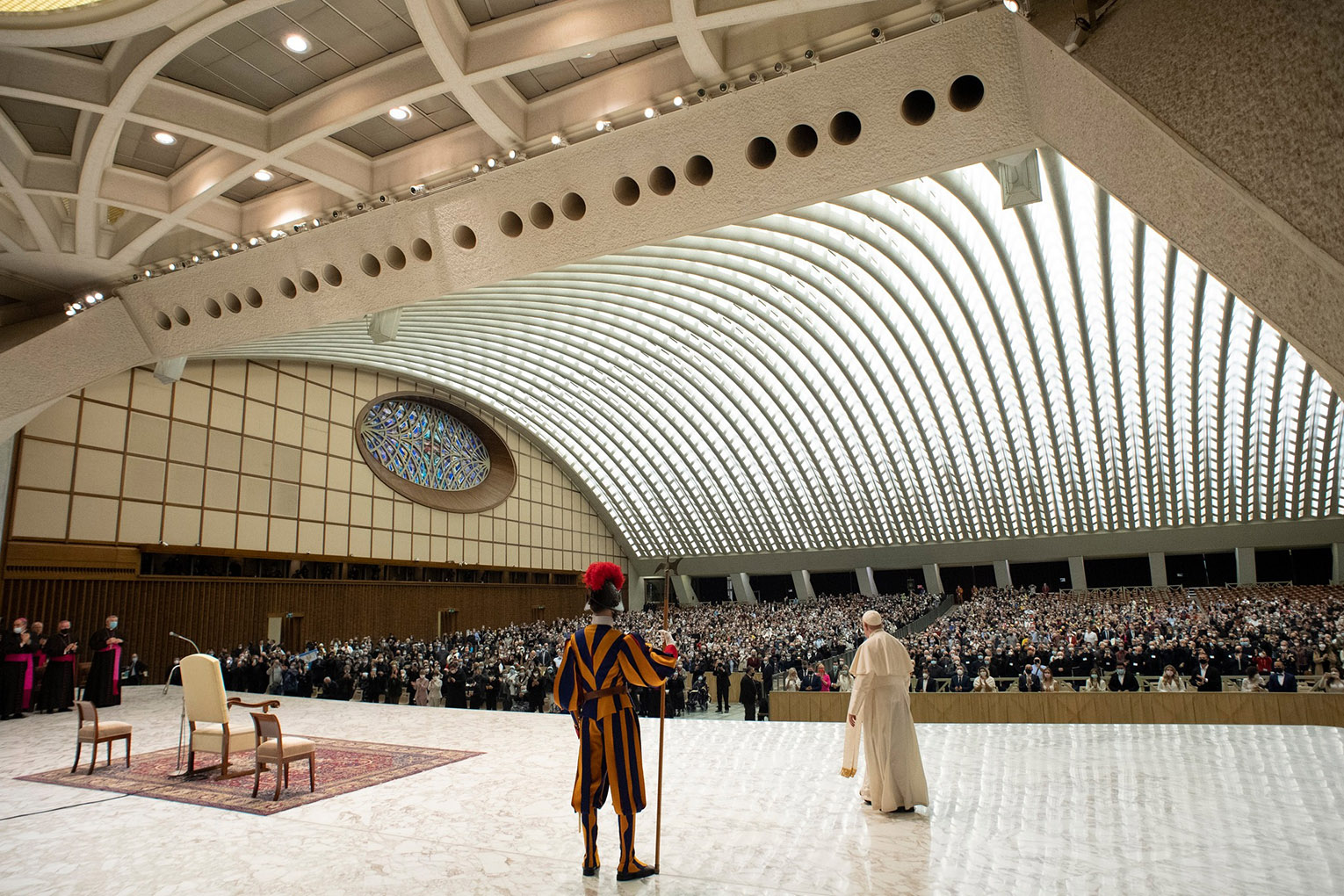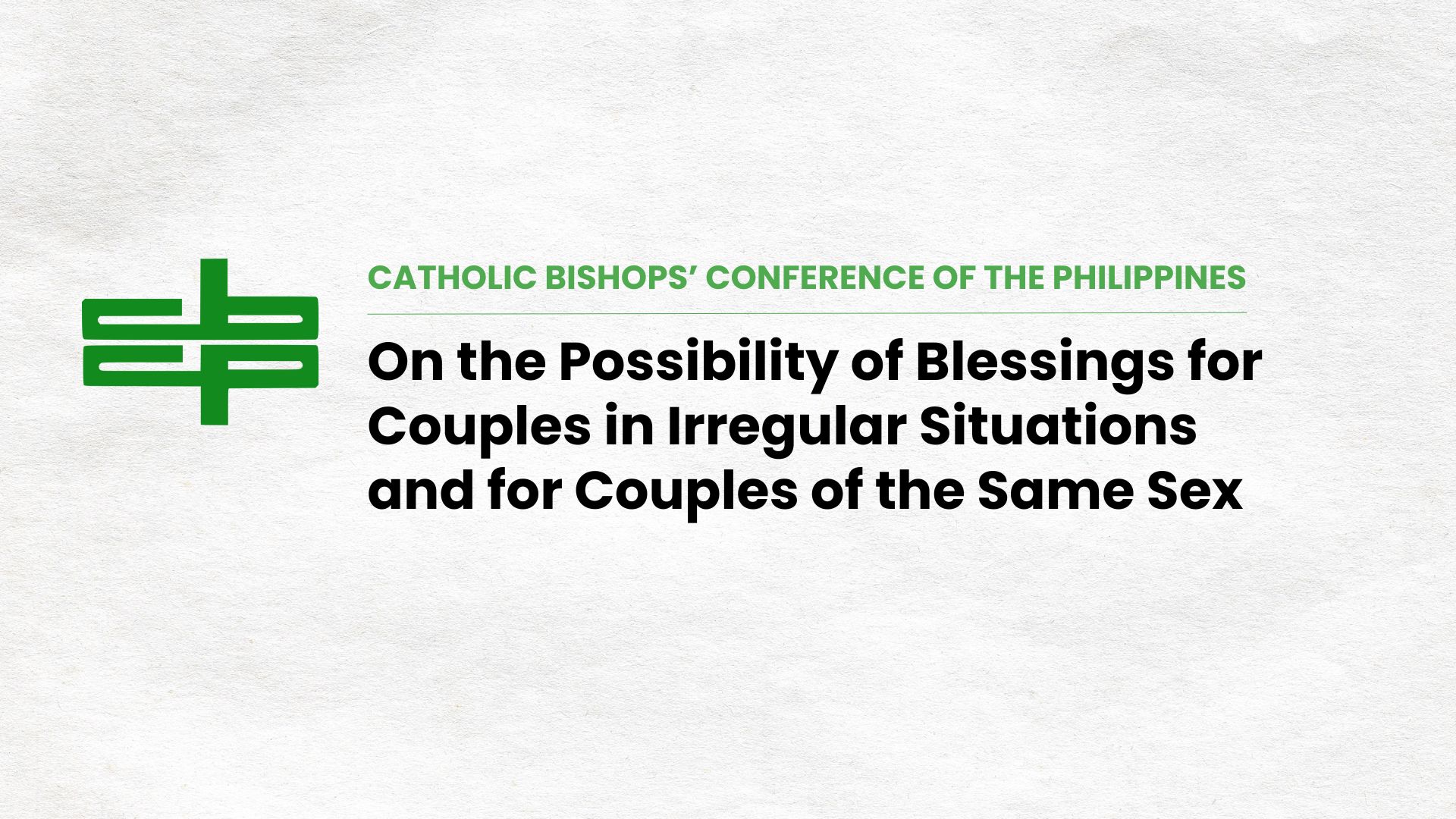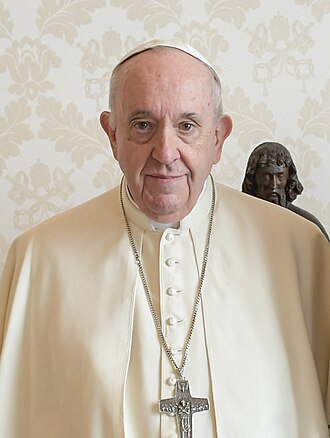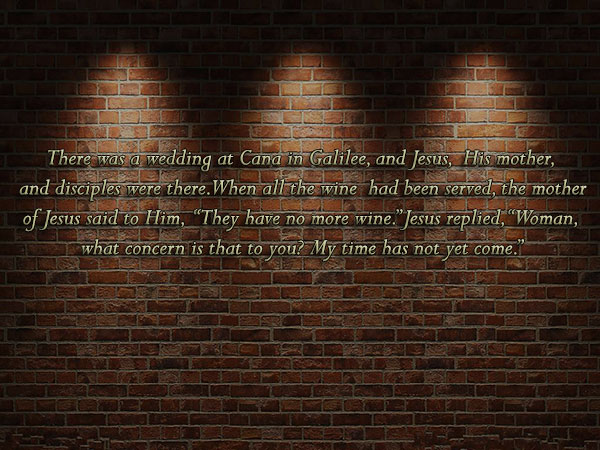
VATICAN MEDIA
By Hannah Brockhaus
Catholic News Agency
November 17, 2021
VATICAN— St. Joseph teaches us to see and care for the people overlooked by the world, Pope Francis said at his general audience on Wednesday.
“Joseph, who is a carpenter from Nazareth and who trusts in God’s plan for his young fiancée and for himself, reminds the Church to keep her eyes on what the world deliberately ignores,” the pope said in the Vatican’s Paul VI Hall.
The pope introduced a new theme on Nov. 17 for his weekly audience, which will be focused on the spouse of the Blessed Virgin Mary before the Year of St. Joseph draws to a close on Dec. 8.
St. Joseph “reminds each of us to value what others discard. In this sense, he is truly a master of the essential: He reminds us that what truly matters does not attract our attention, but requires patient discernment to be discovered and appreciated,” Francis said.
“Let us ask him to intercede so that the whole Church may recover this insight, this ability to discern and evaluate what is essential.”
Pope Francis announced last year that the Catholic Church would celebrate a Year of St. Joseph in honor of the 150th anniversary of the saint’s proclamation as patron of the Universal Church.
“Each of us can discover in Joseph — the man who goes unnoticed, a daily, discreet and hidden presence — an intercessor, a support and a guide in times of trouble,” the pope wrote in a letter entitled Patris corde (“With a father’s heart”).
Pope Francis has spoken several times about his devotion to the silent saint. In his homily at his inauguration as pope on March 19, 2013, the Solemnity of St. Joseph, he said that a pope “must be inspired by the lowly, concrete and faithful service which marked St. Joseph and, like him, he must open his arms to protect all of God’s people and embrace with tender affection the whole of humanity, especially the poorest, the weakest, the least important.”
At his live-streamed general audience, Francis reflected on the Bible’s first geographical references to St. Joseph — the towns of Bethlehem and Nazareth — as a way to know the saint better.
Nazareth, the place St. Joseph was from, was a town on the periphery, and where Jesus lived most of his life before his public ministry.
It is significant, Francis noted, that Jesus’ Incarnation was not lived in the holy city of Jerusalem, but in Bethlehem and Nazareth, “two outlying villages, far from the clamor of the news and the powers of the time.”
This choice shows us God’s preference for the “periphery and marginality,” the pope said, adding that “to fail to take this fact seriously is equivalent to not taking seriously the Gospel and the work of God, who continues to manifest himself in the geographical and existential peripheries.”
Not only did Jesus go in search of sinners, the suffering, the hungry, and the poor, while he walked the earth, he continues to go to the “peripheries” in our lives, he said.
“And this must give us so much trust, because the Lord knows the peripheries of our heart, the peripheries of our soul, the peripheries of our society, our city, our family, that is, that slightly dark part that we do not show, perhaps out of shame.”
“In this respect, the society of that time is not very different from ours,” he continued. “Today, too, there is a center and a periphery. And the Church knows that she is called to proclaim the Good News from the periphery.”
Pope Francis also pointed out that Catholics can learn more about St. Joseph from his name, which is Hebrew for “may God increase, may God give growth.”
“It is a wish, a blessing based on trust in God’s providence and referring especially to fertility and to raising children,” the pope explained. “Indeed, this very name reveals to us an essential aspect of Joseph of Nazareth’s personality: He is a man full of faith in God, in his providence.”
Joseph’s “every action, as recounted in the Gospel, is dictated by the certainty that God ‘gives growth,’ ‘increases,’ ‘adds’: that is, that God provides for the continuation of his plan of salvation,” he commented.
Pope Francis closed his speech with a special message for those who live in the forgotten peripheries of the world, or who experience existential marginalization.
“May you find in St. Joseph the witness and protector to look to,” he said, sharing a short prayer that Catholics can say:
“St. Joseph, you who have always trusted God, and have made your choices guided by his providence, teach us not to count so much on our own plans but on his plan of love. You who come from the peripheries, help us to convert our gaze and to prefer what the world discards and marginalizes. Comfort those who feel alone and support those who work silently to defend life and human dignity. Amen.”









